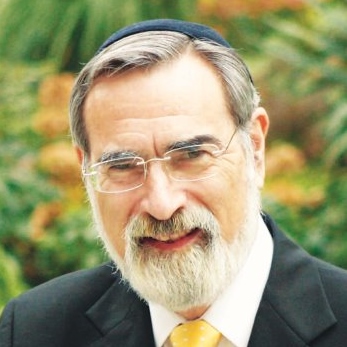click to dowload our latest edition
CLICK HERE TO SUBSCRIBE TO OUR NEWSLETTER


Published
5 years agoon
By
adminRABBI LORD JONATHAN SACKS
“Bliss was it in that dawn to be alive,” wrote Wordsworth about the French revolution, but the mood did not last long. It rarely does. Sometimes all that happens is that the tyranny of the minority is replaced by the tyranny of the majority; sometimes not even that. The faces change. The suffering remains.
The books of Exodus and Deuteronomy take a different route altogether. It’s astonishing how, reflecting on the Israelites’ journey from slavery to freedom, Moses keeps returning to one subject above all others: how we teach our children. “When your children ask you this, you should answer them that.” “Teach your child on that day.” “Say to your child…” Four times Moses speaks about the duty of parents to educate their children, handing on to them their people’s story until it becomes their own.
That’s what we do each year on Passover as we gather in our extended families to re-enact the night long ago when our ancestors readied themselves to leave Egypt, and begin the long walk to freedom. It’s a remarkable ceremony, the oldest continuously observed religious ritual in the world, going back thousands of years. We still eat the matzah, the dry unleavened “bread of affliction”, and taste the maror, the “bitter herbs” of slavery. And children are still at the heart of this celebration. For we can only tell the story in response to questions asked by a child. That’s why, for many of us, our earliest Jewish memory is of asking the “four questions”, beginning with, “Why is this night different?” We remain faithful to Moses’ mandate: first teach the children.
Much has been written since Moses’ day about freedom. Even today it is the key word of politics, especially in those parts of the world under repressive regimes. Still the talk is of politics and power, armies and militias, tactics and strategy, regime change and international intervention. Still we are surprised when the new guard turns out to be as bad as the old guard. The faith religious believers have in G-d is small compared to the faith people put in politicians, knowing how many times they have been disappointed in the past but still insisting that this time it will be different.
Moses taught us something else entirely. The world we build tomorrow is born in the stories we tell our children today. Politics moves the pieces. Education changes the game. If you want a free society, teach your children what oppression tastes like. Tell them how many miracles it takes to get from here to there. Above all, encourage them to ask questions. Teach them to think for themselves. Get them to continue the heritage not through blind obedience – the world’s worst preparation for liberty – but through active, challenging conversation across the generations. That’s how we learned, as children about the long walk to freedom. It’s how we came to take our ancestors’ story as our own.
Amid all the talk about the challenges facing the world in the twenty first century – climate change, the global economy, political turmoil, the impact of new technology – far too little is said or thought about education, and even when it is, it focuses on the wrong things, such as technical skills. Education is the single most important determinant of the future of the human race, and what and how we teach our children is the most important decision we can make.
We have to teach our children that freedom comes only when you respect the freedom of others, that it involves responsibilities as well as rights, and that it means making sacrifices for the common good. G-d, the supreme power, intervened in history long ago to help the supremely powerless, a nation of slaves, and ever since, His work must be ours. Nor can we teach these things without giving children the space to ask, question, and challenge, thereby learning the dignity of dissent, itself one of the elements of freedom.
Liberty is born not on the battlefield but in homes, schools, and houses of study. That is the message of the world’s oldest ritual, Passover, and its force remains undiminished today.
